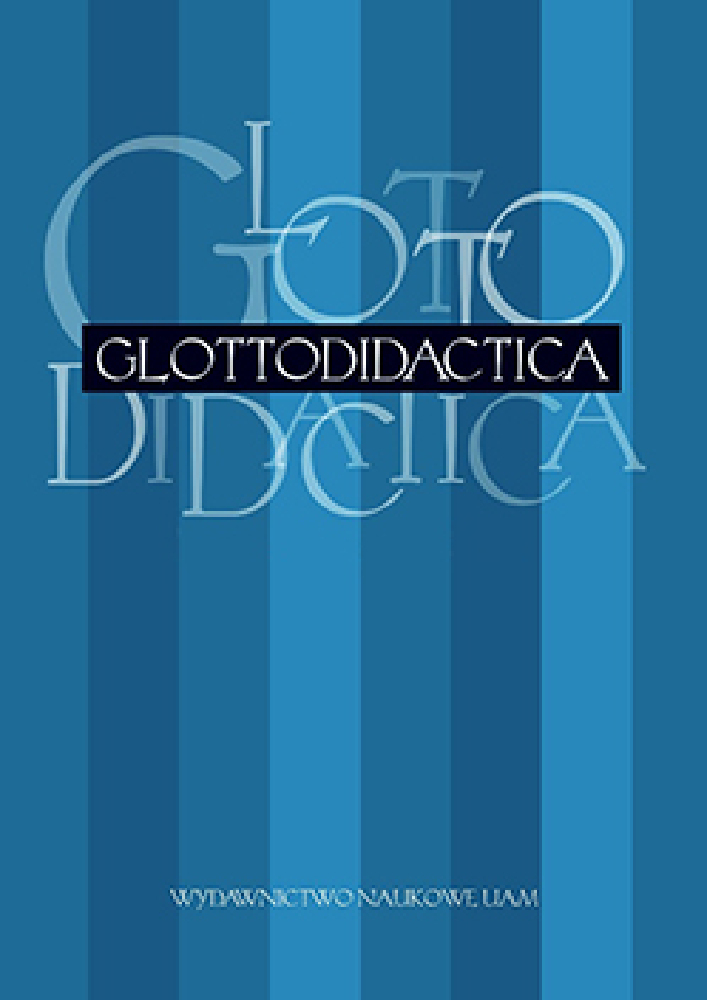Abstract
The article deals with the problems of teaching and learning speaking, in particular those which are most relevant in the context of developing oral skills at the advanced level of foreign language proficiency. The complex nature of spoken discourse must be taken into account and reflected at each stage of the learning process. Thus, the article examines the difficulties connected with choosing the appropriate framework and approach and discusses the typical patterns of interaction in the foreign language classroom. It also examines forms of control and evaluation and suggests some speaking activities which seem most suitable for advanced language learners in the light of the above theoretical considerations.References
Cazden, C.B., 1988. Classroom discourse: The language of teaching and learning. Portsmouth, NH: Heinemann.
Dakowska, M., 2005. Teaching English as a Foreign Language. A Guide for Professionals. Warszawa: Wydawnictwo Naukowe PWN.
Johnson, K.E., 1995. Understanding Communication in Second Language Classrooms. Cambridge: Cambridge University Press.
Nolasco, R., Arthur, L., 1987. Conversation. Oxford: Oxford University Press.
Skehan, P., 1998. A Cognitive Approach to Language Learning. Oxford: Oxford University Press.
Thornbury, S., 2007. How to Teach Speaking. Harlow: Pearson Education Limited.
Ur, P., 1995. A Course in Language Teaching. Practice and Theory. Cambridge: Cambridge University Press.
Webb, N.M., 1982. Student interaction and learning in small groups. In: Review of Educational Research 52 (3), 421–445.
License
Authors
Authors of texts accepted for publication in Glottodidactica are required to complete, sign and return to the Editorial team’s office the Agreement for granting a royalty-free license to works with a commitment to grant a CC sub-license.
Under the agreement, the authors of the texts published in Glottodidactica grant Adam Mickiewicz University in Poznań a non-exclusive, royalty-free license and authorize the use of Attribution-NoDerivatives 4.0 International (CC BY-ND 4.0) Creative Commons sub-license.
The authors retain the right to the free disposal of the work.
Users
Interested Internet users are entitled to use works that have been published in Glottodidactica since 2016, under the following conditions:
▪ attribution – obligation to provide, together with the distributed work, information about the authorship, title, source (link to the original work, DOI) and the license itself.
▪ no derivatives – the work must be preserved in its original form. Without the author's consent, it is not possible to distribute the modified work in the form of translations, publications, etc.
Copyrights are reserved for all texts published before 2016.
Miscellaneous
Adam Mickiewicz University in Poznań retains the property right as a whole (layout, graphic form, title, cover design, logo etc.).
Privacy statement
The names and email addresses published on this journal site will be used exclusively for the purposes declared by this journal and cannot be used for any other purpose or by any other party.




